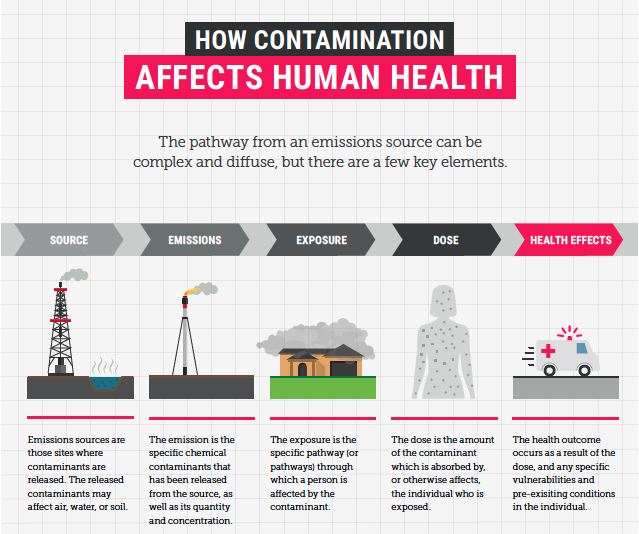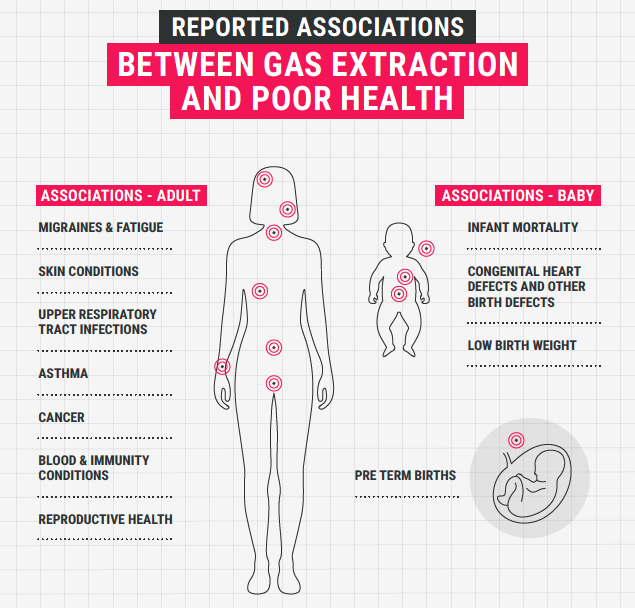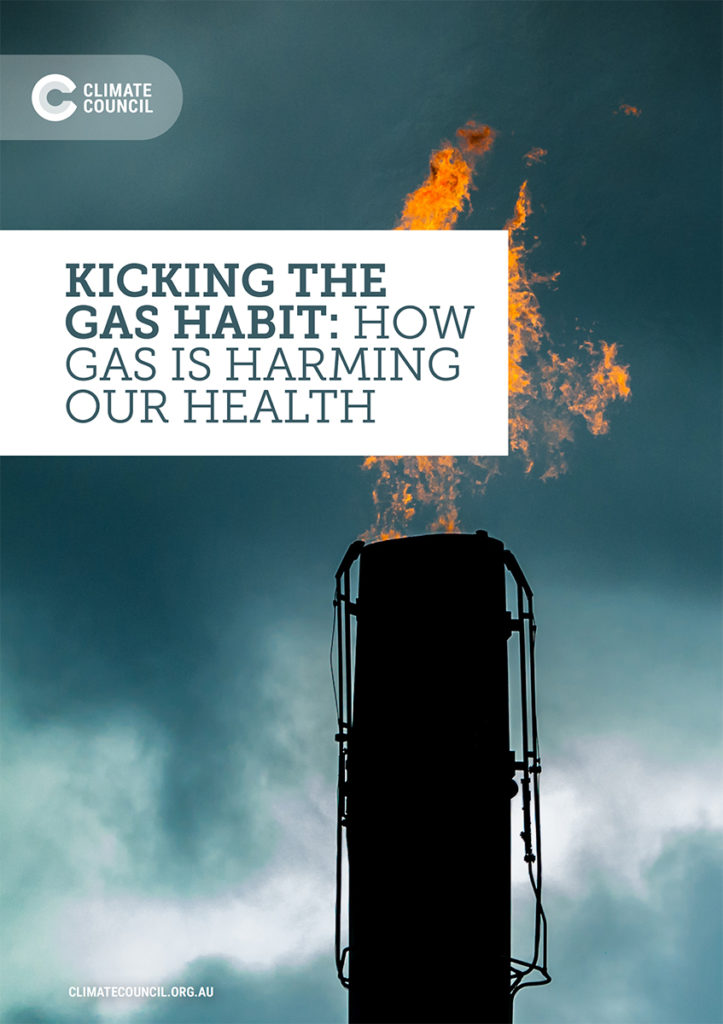This content is more than 3 years old
Decades of aggressive marketing to Australians has led to several misconceptions about gas. In reality, gas is far from clean; it is a polluting fossil fuel that is already harming our health, wellbeing and, of course, the climate. With more gas in the mix, this risk of harm only increases.
This report is about Australia’s gas industry, the threat it poses to our health, and the way out: of kicking the gas habit for a cleaner, healthier, and more prosperous future.
Key findings
1. Unconventional gas development, including fracking, is exposing Australian communities to unnecessary health risks.
- Gas extraction and processing involves many hazardous substances including those that cause cancer, interfere with hormones, trigger asthma and contaminate the local environment through airborne pollution and wastewater.
- Unconventional gas extraction, including coal seam gas and shale gas, with or without fracking, introduces further risks to human health.
- There is growing overseas evidence of health impacts on communities living close to gas wells, including on reproductive and respiratory health.
- Evidence of negative health impacts in Australia is emerging, and while independent research, free of any ties to the gas industry, from here is limited, this is consistent with overseas studies.
- Continued expansion of gas across the country puts more Australians at risk of adverse health impacts.

2. Burning gas at home can harm our children’s health.
- Far from the “clean and natural” image that the gas industry markets, the use of gas for heating and cooking indoors carries many health risks.
- Cooking with gas is estimated to be responsible for up to 12% of the burden of childhood asthma in Australia. A child living with gas cooking in the home faces a comparable risk of asthma to a child living with household cigarette smoke.
- Better ventilation, including modern extraction fans over stoves, flues for gas heaters and other safety measures like ensuring appliances are properly serviced or opening windows can reduce – but not eliminate – these risks.

3. Children and poorer households are at highest risk from, and most likely to be harmed by, gas production and use.
- Gas production and use poses additional risks for babies and children. At the production phase there is mounting evidence of associations between living close to unconventional gas extraction and impacts upon early-life development. Within homes, the indoor air pollution from gas used for heating, cooking and hot water disproportionately
risks children’s health. - In addition, poorer households are more exposed to the harmful effects of gas appliances: they are less able to afford proper maintenance, and more likely to be renting or living in public housing where they rely on old, poorly maintained gas appliances.
4. Gas is a polluting fossil fuel. Governments can prevent health issues, and reduce harm, by helping households, and the country, get off gas.
- While today’s gas may have once been a welcome upgrade from still dirtier fuels such as town gas, wood, coal or kerosene, gas appliances have fast become a poor and polluting cousin to more efficient and healthier electric alternatives.
- Simple, practical policy steps from governments like ending mandatory gas connections for new residential developments – as has occurred in the ACT – and incentives that help people replace gas appliances with electrical alternatives, will speed up the switch already underway and promote better health outcomes.
5. Clean energy alternatives like solar and wind are the key to a prosperous, healthy future for all Australians.
- Australia does not need to rely on gas for domestic energy security or for export revenue. As the sunniest and windiest inhabited continent on Earth, Australia is blessed with some of the world’s best renewable energy resources – enough to support both our own energy needs and a large renewable powered export industry.
- Renewables, like solar and wind, backed by storage, like batteries and pumped hydro, now offer the cheapest sources of electricity for Australians.
- For households, shifting from as to efficient electric appliances can save money over time and be good for our health, while reducing burdens on the healthcare system.

